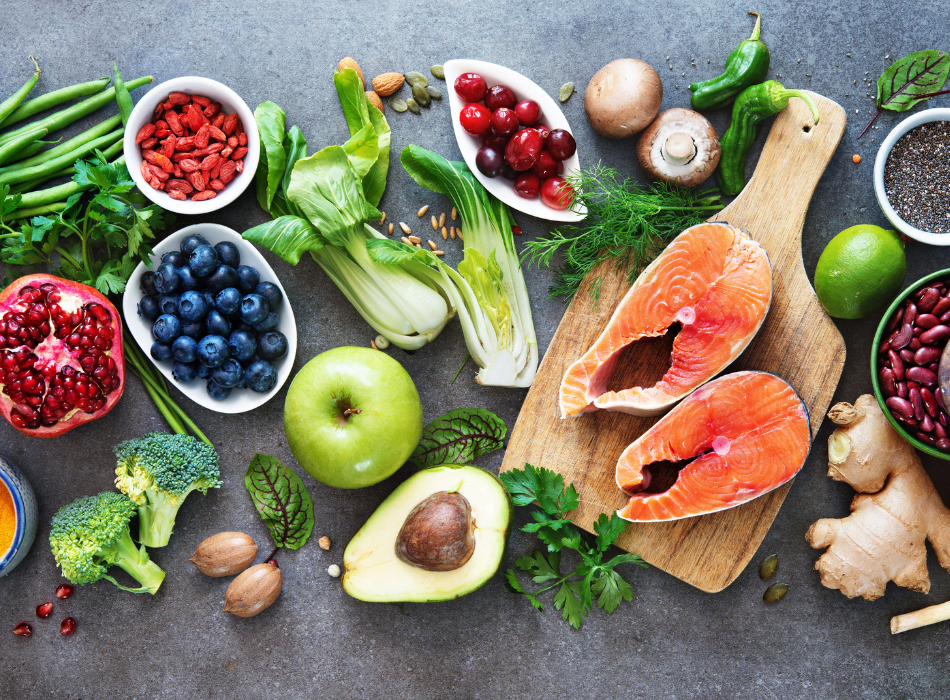We all know carrots are good for your eyes, but did you know a balanced diet packed with specific nutrients can play a powerful role in maintaining healthy vision? Just like the rest of your body, your eyes thrive on proper nourishment. Let’s delve into the delicious world of eye-boosting foods and how they contribute to sharp vision.
A Feast for the Eyes: Essential Nutrients
- Antioxidant Powerhouse: Lutein and zeaxanthin are superstar antioxidants found in leafy green vegetables like kale, spinach, and collard greens. They act like a shield, protecting your eyes from harmful UV rays and age-related macular degeneration (AMD).
- Vitamin A for All: This essential vitamin plays a crucial role in night vision and maintaining a healthy cornea, the eye’s outer surface. Load up on orange-colored fruits and vegetables like carrots, sweet potatoes, and cantaloupe, or include liver and eggs in your diet for a vitamin A boost.
- Omega-3 Magic: Fatty fish like salmon, tuna, and sardines are brimming with omega-3 fatty acids. These healthy fats contribute to overall eye health and may help prevent dry eyes and macular degeneration.
- The Vitamin C Connection: This antioxidant powerhouse strengthens the blood vessels in your eyes and helps protect against cataracts. Citrus fruits, bell peppers, and broccoli are all excellent sources of vitamin C.
- Zinc’s Eye for Detail: Zinc plays a role in delivering vitamin A to the retina and contributes to night vision. Incorporate lean meats, poultry, nuts, and beans into your meals to up your zinc intake.
Building a Balanced Plate for Better Vision
The key to eye-healthy eating isn’t just about single superstars; it’s about embracing a colorful and varied diet. Think of your plate as an artist’s palette, filled with vibrant fruits and vegetables, whole grains, and lean protein sources. Here are some tips:
- Make it colorful: Aim for a rainbow on your plate every day. The wider the range of colors you consume, the more diverse the nutrients you’ll get.
- Don’t forget the H2O: Staying hydrated keeps your eyes lubricated and helps flush out toxins. Aim for eight glasses of water daily.
- Limit processed foods: Processed foods are often high in unhealthy fats, added sugars, and sodium, which can contribute to inflammation and potentially harm your eyes.
Nourishing Your Eyes for a Lifetime of Sight
By incorporating these eye-friendly foods into your diet, you’re taking a proactive step towards maintaining healthy vision. Remember, a balanced diet is essential for your overall health, and your eyes are no exception. So, enjoy a delicious and nutritious feast for your eyes, and see the world a little more brightly!
Disclaimer: This blog post provides general information and does not substitute for professional medical advice. Always consult with your doctor or registered dietitian for personalized guidance on diet and vision health.

